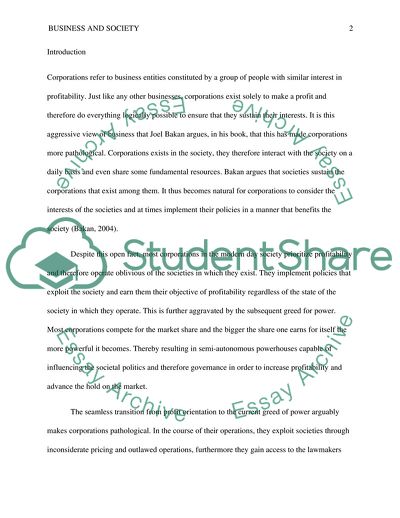Cite this document
(Critical Analysis of Joel Bakans Argument in the Corporation Book Term Paper - 1, n.d.)
Critical Analysis of Joel Bakans Argument in the Corporation Book Term Paper - 1. https://studentshare.org/social-science/1799713-business-and-society-critically-analyze-joel-bakans-argument-in-the-book-the-corporation
Critical Analysis of Joel Bakans Argument in the Corporation Book Term Paper - 1. https://studentshare.org/social-science/1799713-business-and-society-critically-analyze-joel-bakans-argument-in-the-book-the-corporation
(Critical Analysis of Joel Bakans Argument in the Corporation Book Term Paper - 1)
Critical Analysis of Joel Bakans Argument in the Corporation Book Term Paper - 1. https://studentshare.org/social-science/1799713-business-and-society-critically-analyze-joel-bakans-argument-in-the-book-the-corporation.
Critical Analysis of Joel Bakans Argument in the Corporation Book Term Paper - 1. https://studentshare.org/social-science/1799713-business-and-society-critically-analyze-joel-bakans-argument-in-the-book-the-corporation.
“Critical Analysis of Joel Bakans Argument in the Corporation Book Term Paper - 1”. https://studentshare.org/social-science/1799713-business-and-society-critically-analyze-joel-bakans-argument-in-the-book-the-corporation.


